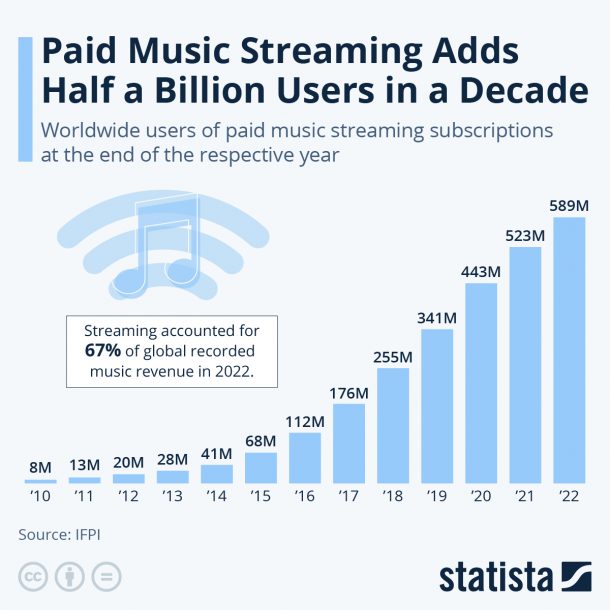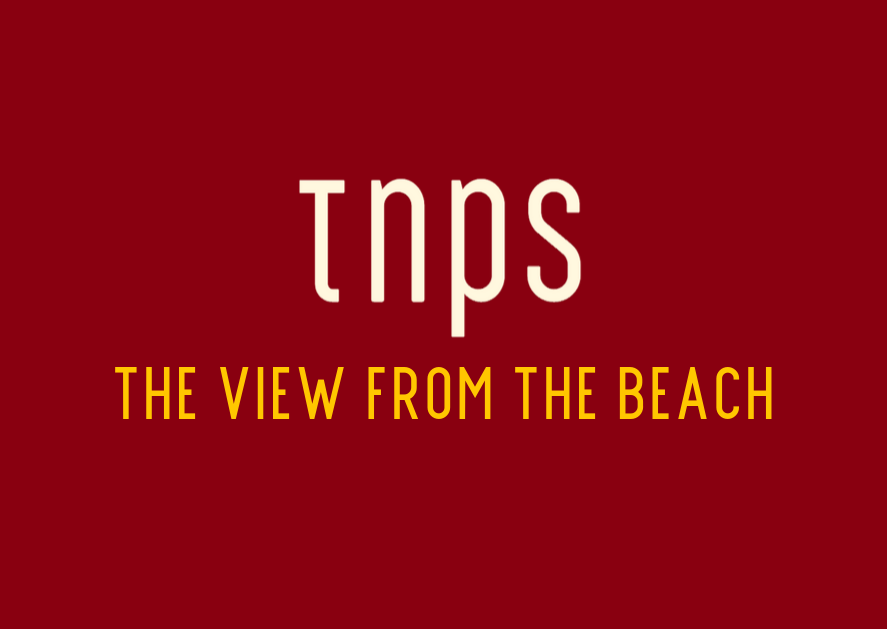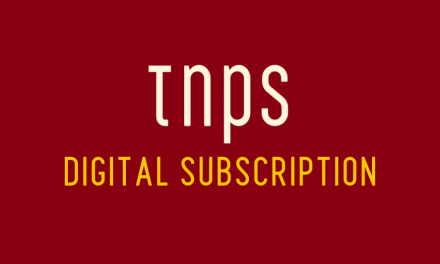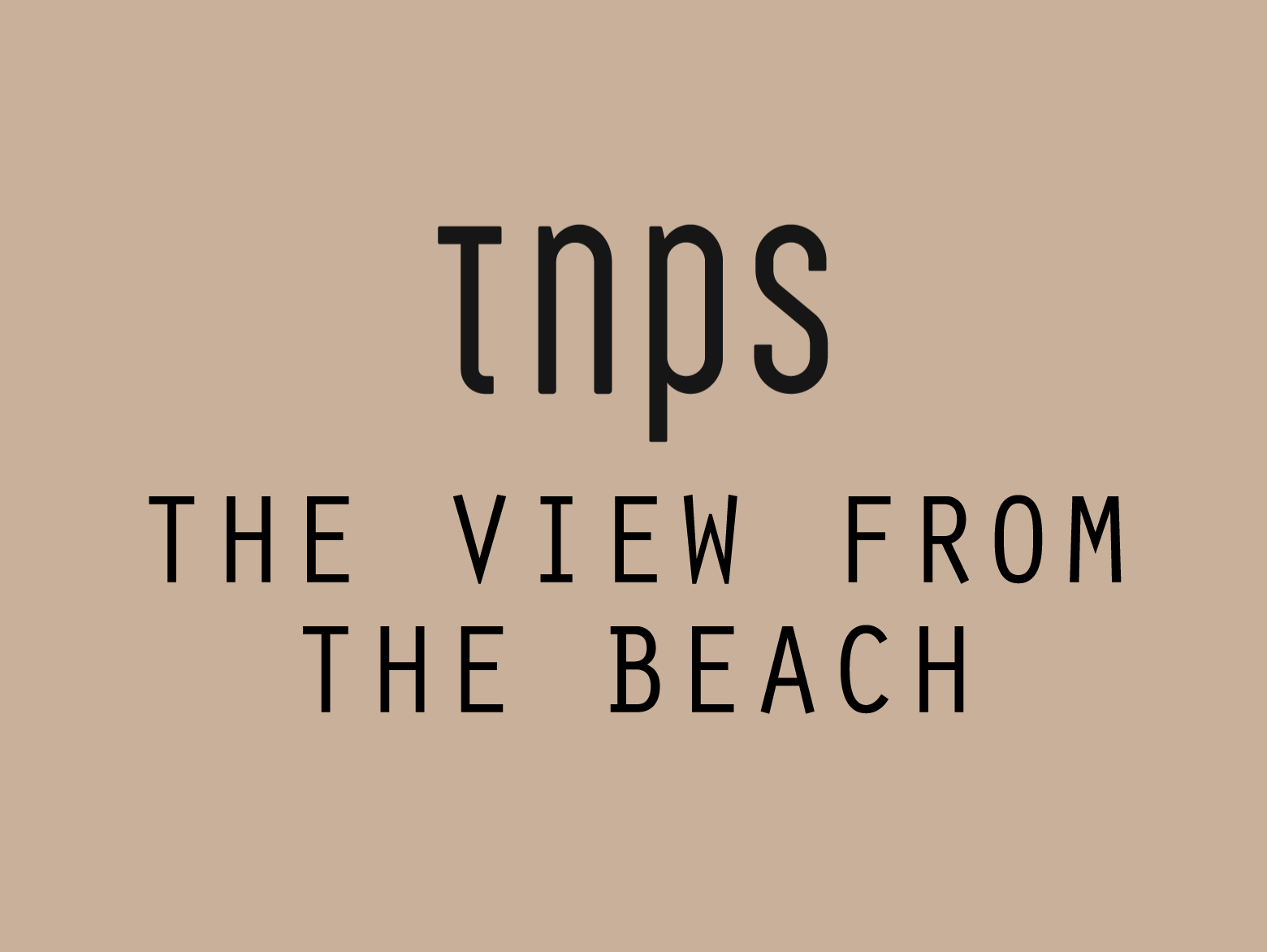How many Audible subscribers, handing over a fixed sum each month for one single audiobook, also subscribe to Spotify for their music fix?
It was way back in the summer of 2020 that Spotify first announced it was making a move on the audiobook market.
How the industry laughed.
Spotify was more than welcome to juggle podcasting and audiobooks in the insignificant overseas markets Amazon barely knew existed and cared even less about. Go ahead and sign up some two-bit audiobook publishers in Narnia, or the Nordics, or whatever the Scandiwegians call their back yard nowadays.
Go give StoryBeat and Nextel a run for their money, fighting over countries the size of small villages. But don’t for one second think you’re welcome in the “proper” markets where the Big Boys play.
We US and UK publishers have a cozy deal with Audible, which we all pretend is not owned by our nemesis Amazon, and we will do everything in our power to keep foreign influences out of AmerInglish publishing, even if it means selling Simon & Schuster to the Germans!
Turning ideas on their heads
Back in Publishing 2020, Markus Dohle was still the Emperor, subscription was a very, very dirty word, Daniel Ek’s name was unspoken, in the same way as Voldemort’s, and everyone in publishing sincerely believed, and ritually repeated three times before breakfast, that Spotify had single-handedly destroyed the music industry with its streaming nonsense nobody wanted.
Here’s the proof!

Yeah, well, first you have to hold that chart upside down, of course. But that’s what publishing is all about. Turning ideas on their head to maintain the status quo at whatever cost.
No wonder then that, back in August 2020, TNPS was a lone voice saying Spotify’s audiobook ambition was a seismic shift in the publishing landscape.
Markus Dohle, to his possible credit, saw this coming and was worried by it – or maybe he just has a problem with the Swedes! Who could forget Dohle in November 2021, complaining bitterly to The Bookseller’s Philip Jones about Spotify and Storytel buying into the US book market.
Whined Dohle, in the full knowledge PRH, a German company, was attempting to acquire America’s last major domestic publisher: “Look at these investments this week: big bucks flowing into the United States publishing industry, Storytel and Spotify entering the scene.”
The reference of course being to Spotify buying Findaway, and Storytel buying Audiobooks.com. In fact, Storytel has just this week taken a big write-down on the Audiobooks.com purchase, as it attempts to balance its books. Keep that in mind as we proceed.
Leveraging dark secrets about former rivals
Markus Dohle of course fell on his sword after the Bertelsmann-PRH conquest of America failed, and hasn’t been heard from since.
No, hold on, he’s still out there wreaking havoc, leveraging legacy goodwill (and maybe dark secrets about former rivals) to promote his 8020 Overture. That will be the 80:20 print-digital books ratio fantasy (among many) explored here.
The relevance of Markus Dohle in 2024 being that he is no longer head of PRH, and while his successor, Nihar Malaviya, has not completely crept out from under Dohle’s dark shadow, the deal that PRH signed with Spotify late last year was almost inconceivable back in May when the above TNPS polemic on Dohle went live.
Which brings us neatly to January 2024, where Audible’s 5% cut in staffing has been widely reported, including over at TNPS as part of a wider staff-dumping exercise by the Everything Store.
And of course these cuts came after Audible UK last summer reported record sales (up 6%) amid falling profits (down 30%).
We only know about that because of reporting regulations in the UK. In the US, Amazon as usual keeps its numbers to itself, but there’s every reason to suppose a similar story has been unfolding, culminating in the 5% staff cuts. But as we’ll see below, there may be another factor at play.
Rumours confirmed
Back in the summer of ’23, of course, Spotify was still a sideshow in the UK and US audiobook sector, having dipped its toes in the water, but with nothing of substance to offer.
But behind the scenes, Daniel Ek had been busy, and in October industry rumours were confirmed when Spotify launched its Premium option in the UK and Australia with access to 15 hours of audiobooks that included titles from all the major publishers. Including, that is, titles from Penguin Random House. And then it did the same a month later in the US market.
If Markus Dohle had been dead and buried by then, he would have been revolving at a fair rate of knots in his grave. As it was, he just geared up the rocking chair on his Sharjah veranda on the Arabian Gulf , closed his eyes and repeated 80:20, 80:20, 80:20 through gritted teeth. Dohle is a firm believer that if you repeat something often enough it automatically becomes true.
Rapprochement
By any measure this Spotify-PRH rapprochement was groundbreaking. True, the new deal was for a fixed consumption period, not unlimited, and obviously the publishers got a very nice wad of filthy Spotify cash in the pocket to tempt them to deal with the devil, some of which might even eventually find its way to the authors and narrators.
But the important thing was, Spotify and the Big 5 Anglo-American trade publishers were not just talking, but dealing, and that included the mighty PRH.
Clearly Dohle’s successor, Nihar Malaviya, read the TNPS memo on the importance of putting clear blue water between himself and the PRH Dinosaur Squad.
As said in that post, “There’s ten years of anti-subscription misinformation to roll back.” But Malaviya has at least made a start.
Three months is a very short time in publishing, an industry where everything happens in slow motion and even coffee breaks are timed with a calendar, and industry statistics for any previous three months of history are going to be wanting in detail.
Which makes any judgement on the impact of the Spotify deal so far hard to meaningfully assess.
A pun-free headline
But that didn’t stop The Bookseller‘s Heloise Wood framing the latest Audible cuts in terms of Spotify’s Premium deals with UK publishers.
“Audible confirms 5% jobs cut amid discussion of Spotify’s impact,” ran an unusually (for The Bookseller) pun-free headline.
Wood quotes an Audible memo from CEO Bob Carrigan explaining that 2023 had been a “strong year” and that the “business is in good shape.”
Obviously. Why else would a company sack 5% of its workforce?
Carrigan went on: “To position us for continued success in the coming year and into the future, given the increasingly challenging landscape we face, we have to take this difficult decision now.”
Might that “challenging landscape” ahead include Spotify, and the fact that the US and UK publishers, for so long Audible’s poodles, had finally grown a hint of backbone and doubled their common-sense reserves to a whole two iotas?
A clear land-grab by Spotify
Wood turned to a senior media analyst at London-based Enders Analysis, Abi Watson, who confirmed what we are all seeing – that the global audiobook market continues to grow, albeit at a slower pace. But what was especially significant in Watson’s take was this on Audible’s staff shafting: Watson proffered “one possible answer” as being that Spotify’s new Premium deal “has taken a substantial bite out of Audible’s market share.”
Watson said, “The launch was a clear land grab by Spotify. From our perspective Spotify is the most credible competitor.”
The terms of the Big 5 deals with Spotify have not been widely announced, but the consensus is that each big publisher came to terms with Spotify separately. What we do know is that for the big publishers they are being paid as if à la carte downloads, subject to a percentage being read. For smaller publishers the traditional shared pot is still the only option available.
The Authors Guild, on behalf of US authors, said as much in its commendable December report, which looked carefully at what was known about the deals.
The sky is falling! Again!
The Authors Guild’s UK counterpart, the Society of Authors, did no such thing. True to form, the SoA flew the Luddite banner high, ranting that the sky was falling. The Spotify deal would have a “devastating effect” on authors, outgoing CEO Nicola Solomon said, explaining that – shock! horror! – authors had not been consulted about the deal between publishers and Spotify.
As we all know, Audible would never dream of signing a deal with any publisher without consulting the author first. Isn’t that right, Nicola?
Let no-one ever accuse the Society of Authors of thinking something through before reacting.
So are authors being ripped off as the Spotify opponents insist? This was Markus Dohle in 2021: “When it comes to subscription, I am convinced that in the long run it is not good for author income, it is not good for retail.”
Jane Friedman kicked off the New Year’s edition of The Hot Sheet with some blunt talking that was certainly music (no pun intended, The Bookseller!) to my ears.
“My annoyance is hard to hide”
Referring to the incessant industry harping on about how evil Daniel Ek is, and how Spotify is destroying the publishing industry and is responsible for world famine and global warming, Friedman (no big fan of Spotify Premium, as we shall see below) said: “I’m afraid my annoyance at all this is hard to hide. It’s not that I believe Spotify prioritizes doing right by authors or the publishing industry—I’m sure it’s as self-interested as any company and must look for ways to make its subscription service profitable. But as someone who has been following the digital subscription space for nearly 10 years now, it’s clear to me that authors aren’t getting a bad deal with Spotify.”
To which I’d only add the caveat that most authors will be in Spotify via their publisher, and the author’s share of the Spotify payout will depend on the contract they chose to sign with the publisher.
Not something the “Coalition of Concerned Creators” appears to understand.
But all this is a side issue compared to what really matters here: Is Spotify gaining any traction in the Anglo-American audiobook markets?
On that point we need to wait until early February for the Spotify results for Q4, which will include part of the period of the Premium audiobook experiment.
Audible profits were in freefall
I’m not au fait with Spotify’s data delivery for big publishers, but I’m guessing they already have a very good idea of what results Spotify Premium is bringing to the table, and may too have some inkling as to how Spotify Premium US and UK is cannibalising or adding to revenues from Audible and Audiobooks.com and other longer-established audiobook platforms.
Again, keep in mind the Storytel write-down on the Audiobooks.com deal. Keep in mind the Audible staff purge despite everything being just hunky dory.
But also keep in mind the Audible profits were in freefall before the Spotify deal, and the Audiobooks.com write-down may be more to do with creative accounting than any real sign the US operation is facing unexpected headwinds from Spotify.
A nothingburger
Personally I’m on the side of the subscription angels. I believe Spotify offers a better deal than Audible right now. But Jane Friedman sees things differently (The Hot Sheet again) and thinks Spotify’s new take on its audiobook service will be a “nothingburger.”
I think Jane is totally wrong, but here’s the two main points from her “working theory“:
- Existing Spotify premium subscribers might take advantage of the free 15 hours each month but never purchase additional hours via Spotify.
- The Spotify deal is a bad one for readers and no-one with a credit subscription with another service is going to jump ship, because the Spotify deal does not confer ownership of the audiobook.
Not that ownership issues have deterred ebook readers or digital library users, of course, so I’m happy to set that one aside as a minority concern. And yes, a point well made about existing premium users, who signed up for premium music advantages and will just take what’s on offer.
It only takes…
But let’s keep in mind that Spotify had some 45 million paying subscribers in the US this time last year (out of a global 220+ million).
It only takes a tiny fraction of those to take advantage of the free audiobook option (and who wouldn’t!) and get the audiobook bug and start buying à la carte or paying for additional download time, and the whole thing becomes very worthwhile.
But here’s where Jane Friedman really misses out on the possibilities: How many Audible subscribers, handing over a fixed sum each month for one single audiobook, also subscribe to Spotify for their music fix?
Consider: Audible charges $14.95 per month, and Spotify Premium $10.99.
Imagine you are a subscriber to both. Suddenly you can get 15 hours of audiobooks for free with Spotify. How many of the monthly Audible credits go on books longer than 15 hours? I just ran a check on Lee Child’s Jack Reacher series, a perennial bestseller, and very, very few are longer than 15 hours. Meaning I could pay Audible $14.95 or pay Spotify $10.99 to listen to many of the same books. Over twelve months, and listening to twelve sub-15 hour books, I’d make a saving of $47.52 on the Spotify deal, plus music!
Even if you are just an Audible subscriber, the maths is pretty straight-forward. If you mostly opt for sub-15 hour audiobooks, Spotify is better value for money.
Audible remains the better option for longer books, obviously, and you have the advantage of “owning” the audiobook for re-listening at a later date, but hey, with a saving of almost fifty bucks on the table I could live with that.
Almost three for the price of two
Mileage will vary by genre, and here’s where it gets really interesting. Romance books tend to be shorter than thrillers, and a look at Colleen Hoover’s Audible titles makes the point for me. Almost all her books are 10 hours or fewer. Each one will cost you a $14.95 credit on Audible. Over at Spotify the deal is very favourable. Almost three for the price of two.
Memo to Jane Friedman: Double fries and ketchup with my nothingburger, please!
So Abi Watson over at Enders Analysis could well be on to something with the suggestion Spotify is already, minutes into the long game, making Audible sweat.
But there is a caveat, and again I’ll defer to Abi Watson, via The Bookseller: “Publishers seem to have been quite strategic about which titles are included in the free 15 hours – the first book in a series is often free, with later titles paywalled, and requiring a separate (paid) download.”
Publishers deliberately putting the brake on Spotify’s potential
I don’t have access to Spotify US or UK from here, so have no idea how many Lee Child or Colleen Hoover titles are on both platforms.
But if Spotify is indeed paying the big publishers full whack, and publishers are holding back content, then that sounds like it might be a case of publishers deliberately putting the brake on Spotify’s potential, for whatever sound business, utterly mindless or simply nefarious reason.
But for those titles that are available in both services, Spotify would appear to have the better deal.
For now.
Which brings us back to that 5% staff cut at Audible. If Audible is going to have to lower its monthly charge to compete with Spotify, this might be one way of financing it.
This post first appeared in the TNPS LinkedIn Pulse newsletter.




